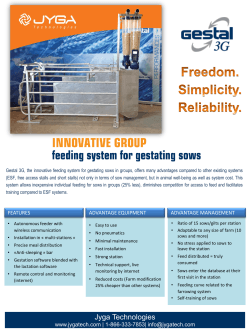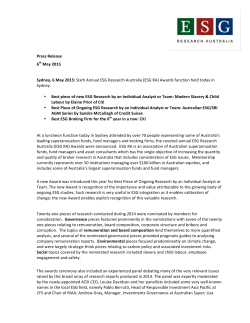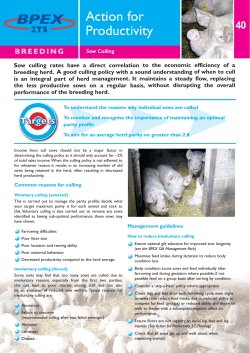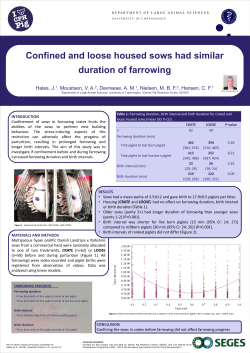
SCREENING AND ENGAGING TO MITIGATE ESG RISKS
SCREENING AND ENGAGING TO MITIGATE ESG RISKS SIGNATORY TYPE Investment Manager ASSETS UNDER MANAGEMENT US $13 bln OPERATING COUNTRY South Africa Futuregrowth is a specialist fixed income investment manager handling a range of investments responsibly and sustainably. As a long-term funding partner we view sustainability as key to understanding risk and creating long-term value. ESG analysis forms part of our investment process to ensure we achieve the appropriate returns for risks taken. The PRI’s Fixed Income Case Study series highlights examples of interesting and innovative approaches to responsible investment. Written by fixed income practitioners from around the world, the case studies cover topics such as integrating ESG, negative and positive screening, thematic investment and engagement. Sharing these examples will enable investors to collectively build a concept of emerging good practice. The PRI aims to publish a set of these short pieces every quarter. If you would like to learn more or contribute your own case study please contact us. An investor initiative in partnership with UNEP Finance Initiative and UN Global Compact WHY SCREENING AND ENGAGING WITH COMPANIES ON ESG RISKS MATTERS We believe that ESG issues represent material financial risks to businesses. As a fiduciary manager, we should engage companies to determine how those risks might be mitigated, and also to encourage changes to align investee companies with industry and global best practice. In our experience, companies are interested in addressing these risks and are increasingly likely to adapt their business models, to the benefit of all stakeholders. Success is defined by borrowers changing their processes to address sustainability issues and improving transparency through disclosure. Companies can adopt a broader view of risk, and identify and mitigate risks as a more formal part of their business strategy. HOW WE SCREEN AND ENGAGE WITH COMPANIES ON ESG RISKS SCREENING We believe that the materiality of ESG issues is reliant on judgement, and that there can be no single or standardised framework for analysing companies on these issues. Our approach to risk analysis is therefore done on a case-bycase basis. Our proprietary ESG scorecard has specific environmental, social and governance criteria and is one of our many credit risk tools. As an institutional lender we believe that sound corporate governance is a very good indicator of integrity and ethical behaviour of management, which are important principles for our partnerships with borrowers. Accordingly, governance factors are weighted 50% on our scorecard, while environmental and social factors are weighted 25%. In addition to the formal ESG scorecard, our analysts apply their knowledge of a borrower to form a qualitative overlay to financial, operational and other risk analysis. This ensures that ESG is part of a holistic view of the risks identified and the ways we can protect clients’ investments against them. ENGAGEMENT Our credit analysts meet borrowers’ management teams during the due diligence process, and conduct site visits to the various business operations. The analyst will identify any key issues and raise them with management, focusing on the risks they consider to be most material to that particular business. To bring about sustainable change, it is important that dialogue continues, through formal or informal meetings, throughout the term of a loan. Figure 1: Futuregrowth ESG scorecard for unlisted issuers ENVIRONMENTAL (25%) (x14 INDICATORS) ■■ ■■ ■■ ■■ 2 Compliance with environmental laws Emissions Reducing energy consumption & efficiency Waste management & recycling SOCIAL (25%) (x15 INDICATORS) GOVERNANCE (50%) (x29 INDICATORS) ■■ Employee relations ■■ Health & safety ■■ Discrimination ■■ Composition of the board ■■ Supply chain risksTORS) ■■ Board appointment process ■■ Performance assessment ■■ Role & function of the board SCREENING AND ENGAGING TO MITIGATE ESG RISKS | SOUTH AFRICA CASE STUDY: SOUTH AFRICAN PORK PRODUCER We recently worked with a South African pork producer on their factory farming practices – in particular the humane treatment of pigs in their production processing. Key industry issues and recommended practice are: SPACE AND FORAGING NEEDS FOR DRY SOWS WELFARE ISSUES GOOD PRACTICE ■■ Bar-biting due to chronic hunger ■■ ■■ Sham-chewing due to boredom and hunger ■■ ■■ Excessive drinking and tongue-rolling due to frustration ■■ Provide space and keep sows in natural groups Provide access to rough forage such as straw, earth or pasture to give them something constructive to do Provide green material, which improves meat quality SPACE AND NESTING NEEDS OF FARROWING SOWS WELFARE ISSUES ■■ ■■ ■■ Piglet-crushing, because sows are larger Separating piglets from sows reduces ability for sows to bond with piglets, with the result that sows may savage them later Limited space to build nests delays births and increases risk of still-born births GOOD PRACTICE ■■ ■■ ■■ ■■ Breed sows with mothering ability Provide sufficient space for nesting to allow sows to manoeuvre Provide plenty of bedding material for nesting and warmth Provide safety areas for piglets We took time to understand the borrowers policy and practices on factory farming standards, slaughter processes and suppliers, and considered them against established standards. In this case, we believe the pork producer demonstrated sound processes and is on a path to best practice. They are heading towards 100% crate-free rearing (with a 2015 target of 60%) and a supply chain compliant with Pork 360: a quality assurance certification created by the South African Pork Producers’ Organisation (SAPPO) requiring regular visits from a veterinarian to ensure animal welfare and development of a Standard Operating Procedure (SOP) document compliant with SAPPO standards 3
© Copyright 2025





















